“If you’re going through hell, keep going.”
Winston Churchill
“Diets generally don’t work, but it’s healthy and balanced lifestyle choices that lead to lifelong weight loss.”
Mark Ludlow
Mark has maintained a weight loss of just over 50 kilos for 3 years now. He lives in London and works as a life coach, and is also working to become a personal trainer.
“Doing what I do…helping people to achieve sustained weight loss and have a better quality of life…it’s the best job in the world.”
Weight Gain Background and Contributing Factors
Mark began gaining extra weight by the time he was four years old. He shares that he grew up with a language learning disability that hindered his ability to communicate with people until around age seven.
Language specialists weren’t as common in schools when Mark was growing up, and he couldn’t get the needed help for his disability at the correct age. All of this caused Mark a lot of frustration at a young age, and he had low self- esteem because of his language disability.
Even though he didn’t specifically know why, the language disability caused Mark to grow up feeling something was different or wrong with him as a kid, and he comforted himself with eating. Mark shares that he sees this time as the beginning of his “limiting beliefs” that plagued him for many years.
How Being Overweight Impacted Mark’s Life
“When you’re excessively overweight like I was, it restricts you in your life in so many ways.”
Physically, Mark says that even small tasks like walking stairs or going down the street for groceries would wear him out. His parents commented to him that he seemed out of breath all the time. Mark says, “There are so many things that people take for granted in their day to day life,” such as going for a walk, which are just out of reach for someone who is overweight.
To hide his size, Mark used to wear baggy clothes, avoid being in photos, and stay away from mirrors. The name-calling he heard directed at him was especially painful. Mark discusses that when you have people say unkind things to you because of your size, it sticks with you.
Mark thinks there is still a stigma that if a person is overweight, it automatically means they are lazy or weak-willed, which just is not true.
“Unfortunately, I’m of the opinion that being overweight is almost like the last acceptable prejudice for a lot of people.”
For Mark, his own psychological restrictions were the most challenging. At social gatherings he wouldn’t interact with others and didn’t ever want to get out of his comfort zone. This caused a negative spiral—the more overweight he was the more uncomfortable he was, and the more uncomfortable he was, the more he wanted to eat.
Over the years Mark tried many diets—Atkins, raw foods, calorie counting, veganism—each with varying levels of success. He yo-yoed up and down.
Making Changes
In his early 20s, Mark’s impulse to lose weight was to be more successful with women. He says he was tired of always being in the ‘friend zone.’ This was what prompted Mark to try Atkins. He lost about 100 pounds (45.5 kg) in 10 months.
Although Mark reached his goal weight, over the next 5 years he slowly gained weight back. Even while he finished school and was in a relationship, limiting beliefs Mark carried over from his childhood seeped into his job interviews. Mark discusses that when you think negatively about yourself you can’t even absorb compliments from other people. Instead, you are effectively putting yourself down before the world or others can do it. He soon got a lot of job rejections, which further damaged his self-esteem.
Mark shares that when he finally did land a job and the job was tough, he would fall back on his self-doubt and feel that he couldn’t succeed at the work.
“Whatever you believe, it becomes a self-fulfilling prophecy.”
Mark hit rock-bottom when he and his girlfriend broke up, he lost his job, and he gained back all 100 pounds he’d lost on the Atkins diet.
Starting The Weight Loss Journey
Mark decided that he was through with his fixed mindset and poor physical health.
“I made a decision that I was going to get to the root of the problem.”
Stress eating, boredom eating, junk food palatability, bad self esteem, etc.—there are lots of reasons people have poor eating habits.
Self-acceptance was critical to the beginning of Mark’s journey. It became clear to Mark that he needed to heal his self-esteem, and he read a lot of books about how to think positively and break his bad mental habits.
Eating right and doing exercise became easier after this mental work, as he was happier. Mark thinks that when you are happy there’s a positive feedback loop—you have more motivation so you want to do things to improve your life, and because your life is good you respect yourself more.
What Mark Learned About Food, Exercise, and Himself
From his past experiences, Mark found that cutting out entire food groups or losing weight by severe restriction usually meant putting back on all the weight. Mark says he doesn’t like the word diet because losing weight long term is about healthy balance and lifestyle changes that you think you can maintain for the rest of your life.
Mark now focuses his meals on protein, small amounts of complex carbohydrates, and fruits and vegetables.
As he began his journey, he reduced his calories gradually over time. For exercise he did predominantly cardio at the beginning, then shifted more time towards lifting weights. Now for Mark exercise is about 80% weights and 20% cardio.
In a typical week Mark works out 4-5 times per week. Mark focuses on compound movements with weights, and also does HIIT (high intensity interval training). As you lose weight, Mark advises that you will need to up the intensity with your exercise.
Mark says this round of weight loss was simpler for him, as he was a lot more enthusiastic and he had more confidence going into the journey.
Mark’s Advice For Your Journey
Instead of just jumping on board a new exercise plan and/or a crash diet, Mark advises people:
“Really think about who you are and what’s going to work for you.”
What motivates you? What are your likes and dislikes? What is going to fit into your life? If you are thinking of starting a new way of eating or exercise, ask yourself: “Can I do this for the rest of my life?”
For exercise, make sure you enjoy what you are doing, and make it fun for yourself. These things make it more likely that you will do exercise long term. Also, Mark advises making sure that exercise can comfortable fit into your weekly routine, or that time crunch will just cause extra stress.
As a psychological exercise, Mark suggests: Draw a few columns about likes and dislikes of your current life. Put pen to paper and write out your detailed thoughts, and this activity can make things more clear for what steps you want to take going forward to improve their life. Take the things you don’t like, and make a list of your order of what needs to change, and start changing.
Resources Discussed In This Podcast
- The Facebook group: My 383lb weight loss story “Team 383,” run by Brian Flemming
- The Gabriel Method by Jon Gabriel [ Amazon / iTunes / iTunes Audiobook ]
On Mark’s Workout Playlist
- Drum and Bass (160-180 bpm) dance music by DJ “The Executioner” Andy C [ Amazon / iTunes / YouTube ]
Contacting Mark
- Youtube: TipsOfTheScale.com/Ludlow
- Facebook: Mark Ludlow Weight Loss Professional Life Coach
- Twitter: @ludlow_mark
- Instagram: @ludlowmark
- Email for life coaching inquiries: mark [dot] ludlow [at] zoho [dot] com
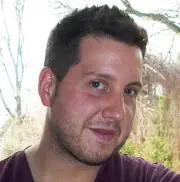


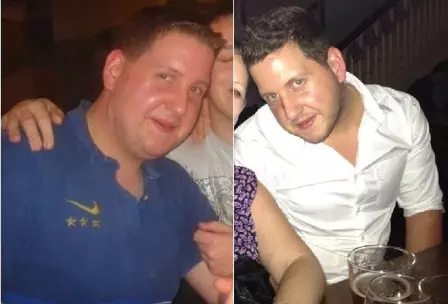
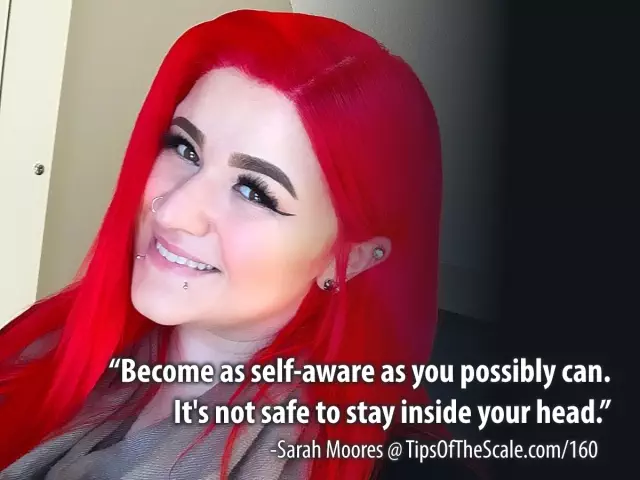
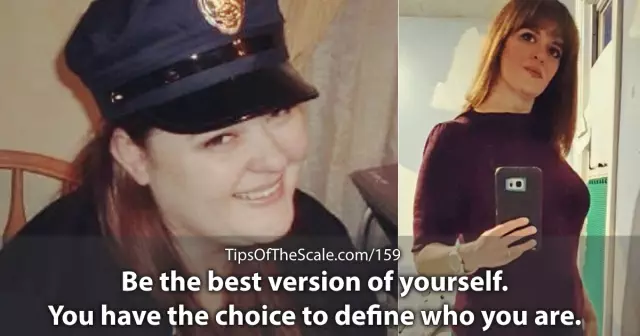
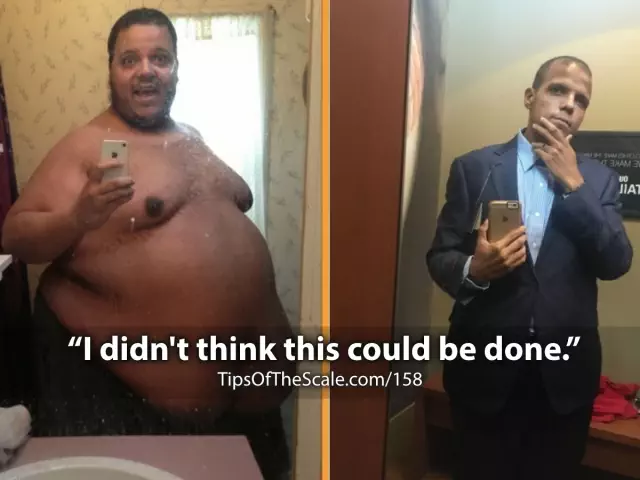
You must be logged in to view comments.